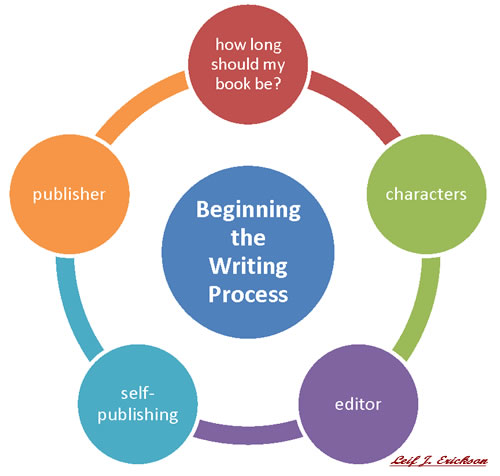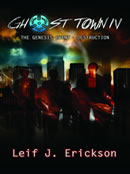Uncategorized
Beginning the Process – Part II
Beginning the Process – Part II
Welcome back. Last week we took a look at a couple questions that I hear from new authors who are just starting out. This week I’m going to look at some more questions that I hear from new authors and give you my take on the situation. Remember, when I started out, I didn’t have a background in writing nor did I have any kind of English, grammar or writing training past high school. I’m an economics major who just happened to get seven books published with another five coming out soon. Your background doesn’t matter for writing, your passion for writing does.
A question I hear a lot from people who are trying to get started writing is how to find the time to write. Our lives are so busy the way it is and often there isn’t enough hours in the day to get done everything we want so how are we supposed to add something else in there? This goes back to why you write. If there is a passion there for writing, you’ll make or find the time to start. If you believe in your story and characters, you’ll figure out how to get them onto paper.
The easiest way to start is to dedicate time each day to writing. Get up an hour earlier or cut out an hour of evening television. Pick a time and say that is when you are going to write. Turn off your phone and internet. Let the people around you know that you are writing and don’t want to be disturbed. This is the time that you dedicate to your writing and nothing else. If things are coming up that distract you, you must remove those distractions or tell the people that you are busy at this time.
If you make it a goal to dedicate at least an hour every day to writing, soon you will have a lot of material written. It adds up every day. This is when it gets exciting. You can begin to see your fictional world taking shape. Your characters are developing and turning into living, breathing people. Magic is taking place on the pages. As you start to get a few chapters into the book, if you aren’t feeling this level of excitement and anticipation about the story, like you can’t wait to finish it, then perhaps the story isn’t as strong as you thought. The writer will always be the biggest fan of their work and if they aren’t excited about it, how do they expect anyone else to be excited?
If you can’t figure out when to write then you have to set time aside and make sure those around you know that you are working during that time. There has to be writing every day. Think of it like going to the gym. If you lift weights one day then don’t come back for a week, are you going to be doing any good? If you write a chapter then set it aside for a few days, will you even remember what you wrote? If you want to get a book published, if you want to be a writer, writing every day is a must, there’s no way around that rule.
The next question that I see often is people asking how to handle writer’s block. What to do if you’re staring at a half-full sheet of paper and can’t figure out what to write next. I tend to think that writer’s block is more looking for a way out of writing that day than anything else, but some people insist that they simply can’t think of what to write next. What do you do if you are stuck and cannot get the writing process going?
In upcoming blogs, I’m going to go into great detail how to outline a story so that by the time you sit down to write it, the story is almost written. How to outline and build a story so that the parts are all there and ready to go, just waiting for you to put them together. Writer’s block happens when you don’t know what to write next. If you’ve outlined the entire story, if you know the story from beginning to end, then writer’s block really shouldn’t exist. You know what’s going to happen so write it. This goes back to writing every day. I didn’t say you had to write perfection every day. I didn’t say what you wrote every day was written in stone. Just write. You can always edit or rewrite it later.
This is key in getting a novel finished. There are days when you are distracted by work and life. There are days when you feel tired and ready for bed. Other days carry excitement that keeps your mind occupied. The trick is, just write. Keep writing every day. There is always something to write about. If you are at a loss for how your story should move forward, look back to your outline. What does it tell you to do? Maybe you are starting to move away from your outline, taking the story in a new direction. That’s fine. Create a new outline for the new storyline.
Another trick to prevent writer’s block is to have more than one writing project going on at a time. I’m always working at least two novels, my blogs, and outlining new story ideas. If one day I can’t think of something for my main novel, I write a blog, or outline a new story. This way I am able to use my writing time effectively. For a writer, there’s no worse feeling than having two hours blocked for writing and at the end of that time you’re staring at the same blank sheet of paper that you were looking at from the start.
Write every day and have multiple projects in the works. Each day your writing will improve and you will start to develop a large body of work. Keep multiple writing projects going so that you always have something to be working on. It is funny how many times I had two different novels I was working on and by the end, they’d merged into one novel. Taking concepts and characters from each I turned two average stories into one really good one.
Keep writing every day. Have enough projects to always keep yourself busy. If you are thinking of writing a novel and have a question about the process, feel free to contact me through Facebook and ask away. Also, be sure to head over to www.leifericksonwriting.com today and check out my published novels. Thank you.


























Leave a reply
You must be logged in to post a comment.